- Home
- 7 Steps of Goal Setting
- Procrastination Definition
A procrastination definition and WHY YOU KEEP PROCRASTINATING
Procrastinators often suffer – their happiness may be diminished, their relationships can be strained, and their health can be ignored. These factors result in higher stress levels, struggling finances, and reduced opportunities. To develop targeted strategies on procrastination we need to have a good procrastination definition?
It is vital to understand procrastination and the procrastination process. Here I want to
- Provide a procrastination definition
- Outline the procrastination cycle
- Identify several intervention points in this cycle to stop procrastination.
Procrastination definition
In Latin, 'pro' means "forward" or "in favor of," and 'crastinus' means "tomorrow." So the Latin verb procastinaire means to 'put off or postpone till another day".
However, many things belong to tomorrow and putting off to another day may be procrastination BUT it could also be a good and wise decision at the moment you make it.
Turning to the psychological definition of procrastination.
"Procrastination is the voluntary delay of an intended action despite the knowledge that this delay may harm the individual in terms of the task performance or even just how the individual feels about the task or him- or herself. Procrastination is a needless voluntary delay."
(Pychyl, 2013, p15)
In this psychological definition of procrastination, there is a gap between intention and action. Let's consider the following two examples:
Example 1
Let us suppose you have an assignment due this Friday. Now you look at the assignment and think, 'this is going to take about 2 hours, and I will do it Thursday night.'
That is not procrastination. That is your intention to do it on Thursday night.
Example 2
But let us suppose that Thursday night comes, and you think, 'I hate writing assignments… gee, I'm hungry...I know…I will work much better if I have something to eat…surely I am not expected to work on an empty stomach…right. So I will check Facebook while I am eating.' Before you know it, your day is gone.
So you tell yourself, "I'll do it later" or "I'll do it tomorrow",…and sure enough, when tomorrow comes, it looks a lot like today.
In example 2, there is a gap between intention and action - an example of procrastination.
Procrastination is not laziness – it's a gap between intention and action. And as this intention-doing gap widens, the more intense and difficult the task we procrastinate on becomes.
What is procrastination: Mind the Gap
A procrastinator has a gap between intention and action.
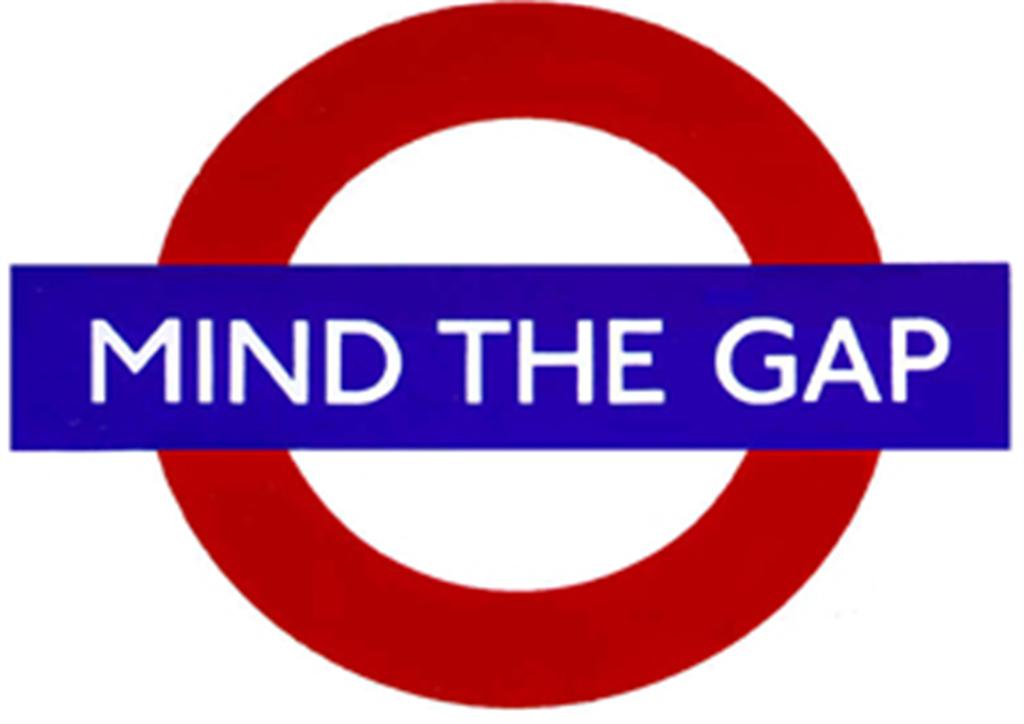 As the intention-doing GAP widens procrastination becomes more likely
As the intention-doing GAP widens procrastination becomes more likelySo if I intend to do some exercise today and I needlessly (and voluntarily) delay acting on my intention, I am procrastinating. This is because I know what I SHOULD be doing, but I am not. As such, a familiar feeling for procrastinators is self-criticism and shame or guilt.
But the consequences of procrastinating extend to losing meaningful relationships, the respect of people we care about, poor financial outcomes, and/or loss of work opportunities. In addition, these may lead to a loss of self-esteem due to feelings of failure, mediocrity, and inability to fulfil one's potential.
The Procrastination Cycle and Stopping Procrastination
The procrastination cycle is learned, which means that it can be unlearned. But this unlearning involves a serious commitment to change.
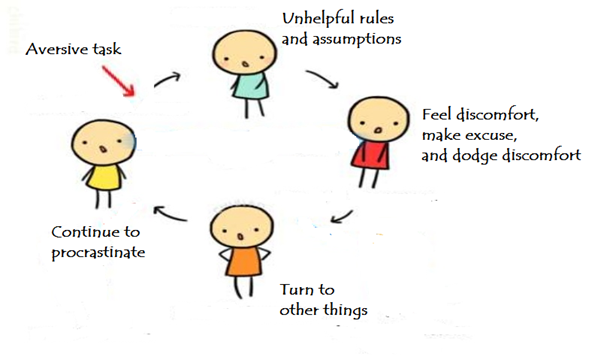 The Procrastination Cycle
The Procrastination CycleWhen something comes along that we procrastinate on, we typically go through the following four steps.
Step 1: The unhelpful rules and assumptions of procrastinators are triggered.
Step 2: We look to dodge the discomfort by making an excuse or rationale
Step 3: We turn to other things to alleviate this discomfort
Step 4: We continue procrastinating and suffer the consequences of putting the task off.
Each of these steps provides leverage points to stop procrastination.
In Step 1:
Here you can challenge some unhelpful rules and assumptions.
We all have rules and assumptions by which we live our lives.
Some are helpful, others can be unhelpful, and they may explain why you
procrastinate. Similarly, the unhelpful rules might show up in the type of
procrastinator you are.
In Step 2:
Here you can learn to sit with the discomfort or challenge the excuses that you make. For example, common procrastination excuses include "I'm too tired" or "I have plenty of time to do it; I'll start it later". Now there may be an element of truth in these excuses. The problem is not the excuse but what is CONCLUDED from the excuse.
These excuses are used to conclude that you are better off not doing the task now - and it is that conclusion that needs to change. So we fall for our own excuses. I talk about challenging these excuses so you don't fall for your procrastination pick-up lines.
In Step 3:
When we turn to something else and procrastinate, we seek temporary stress relief. This is exacerbated by social media, and I discuss some options to stop procrastination in a world of social media.
In Step 4:
Here we continue to procrastinate despite the consequences this has on our well-being and relationships. Intervention points here might include lowering the commitment to start by using the 3D approach or magnifying the simplicity of the task ahead.
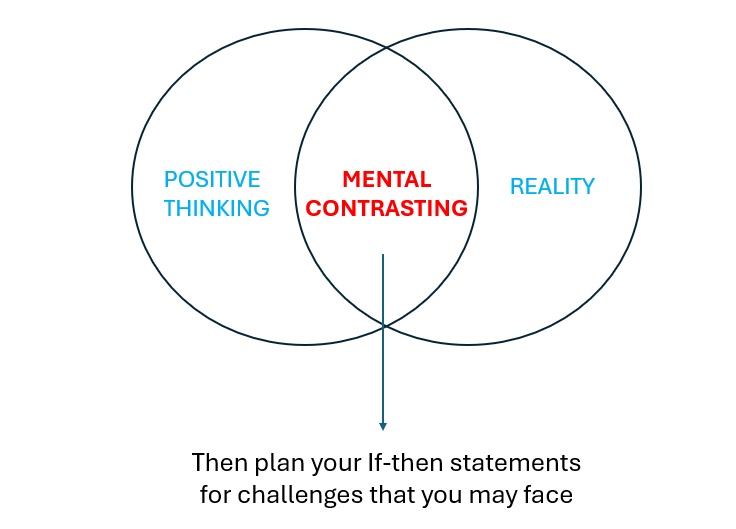

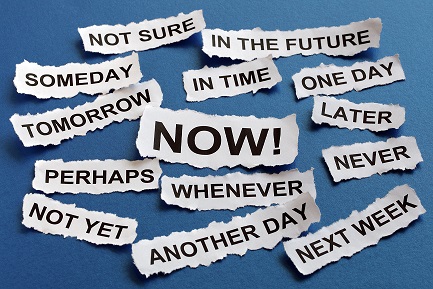


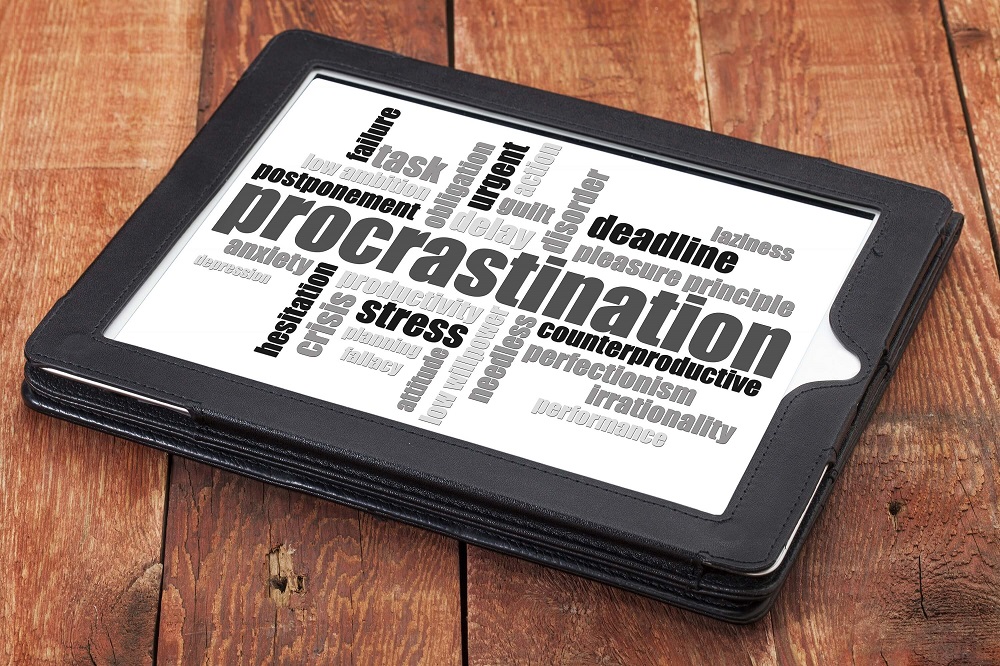
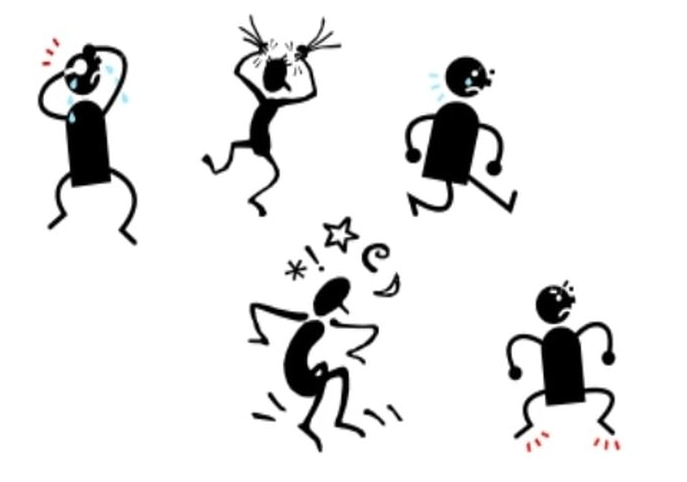
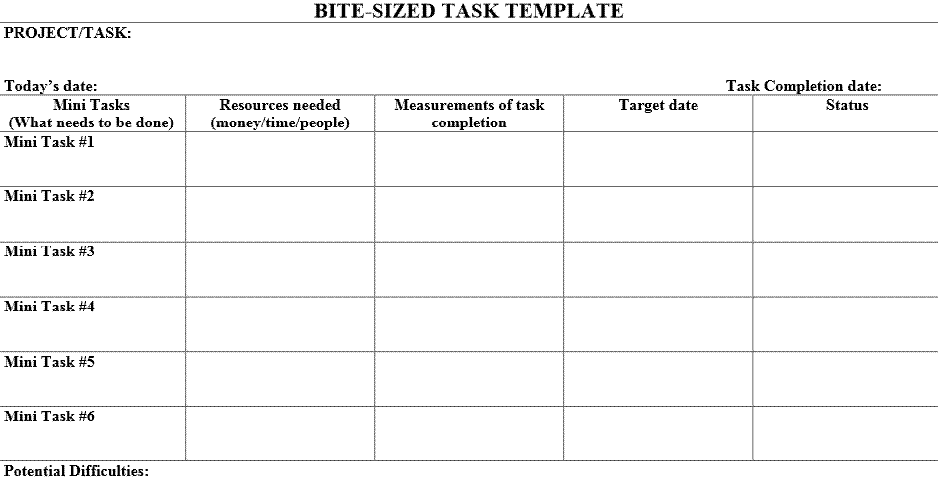


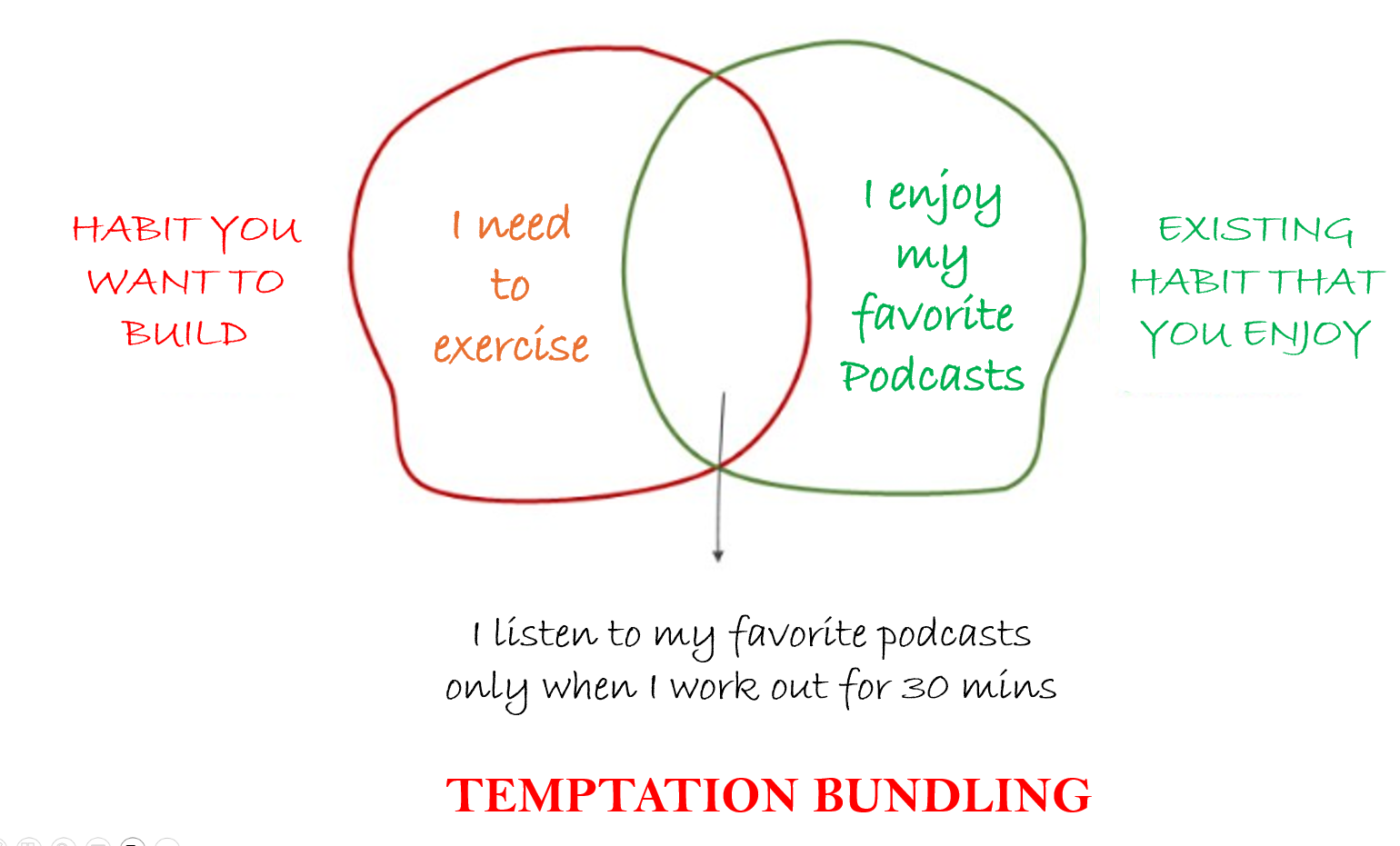



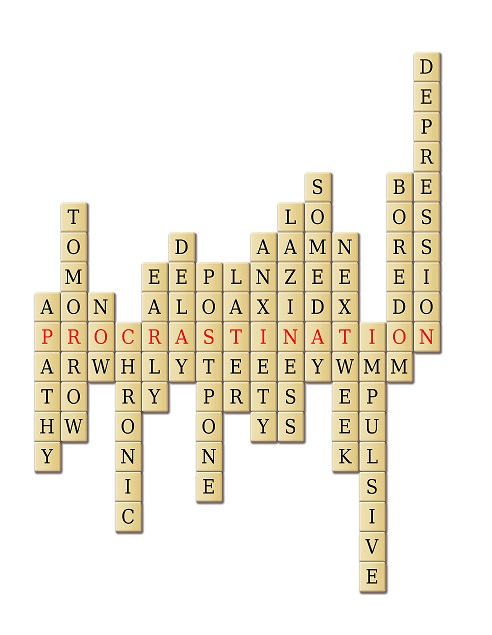
New! Comments
Have your say about what you just read! Leave me a comment in the box below.